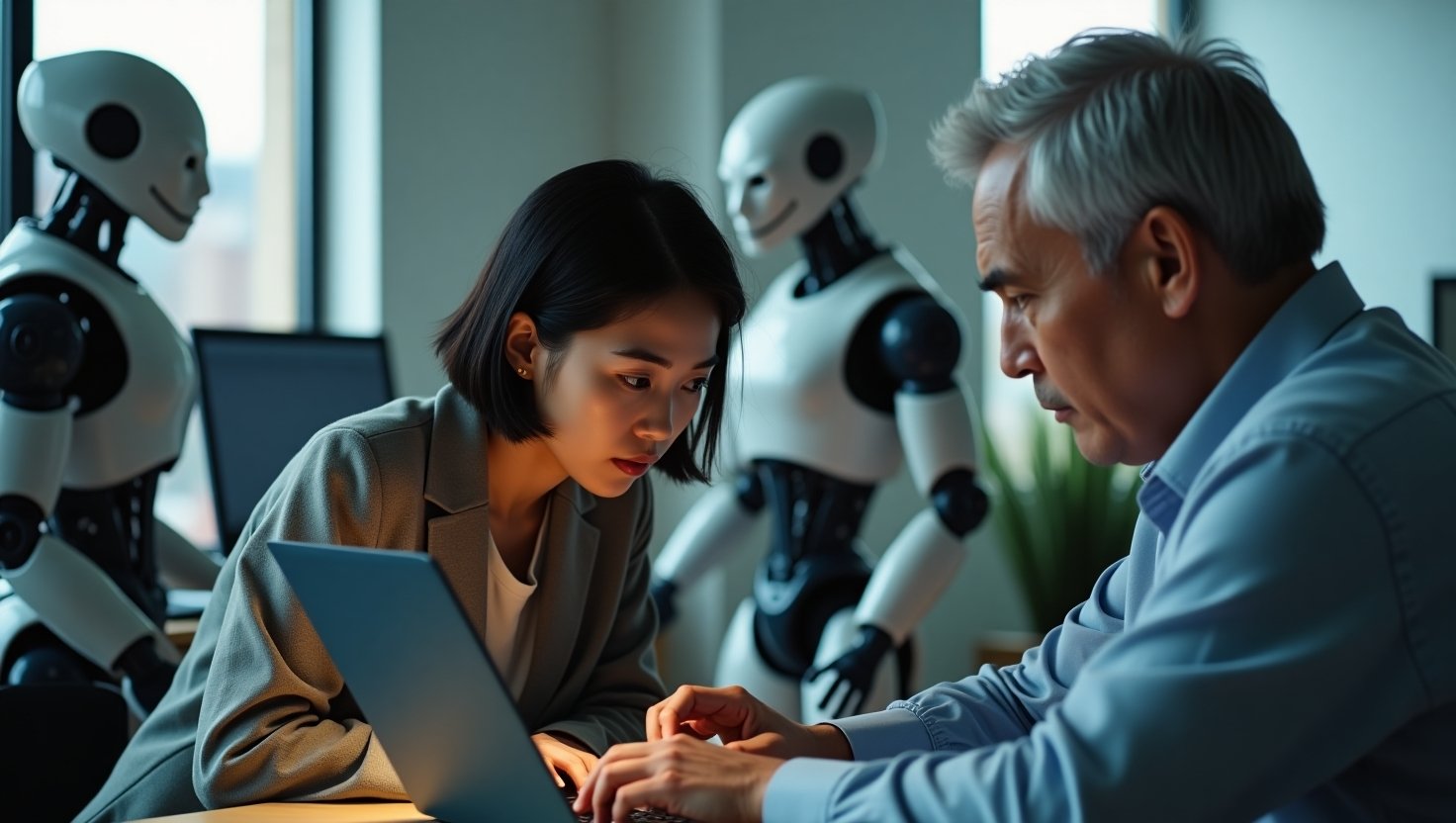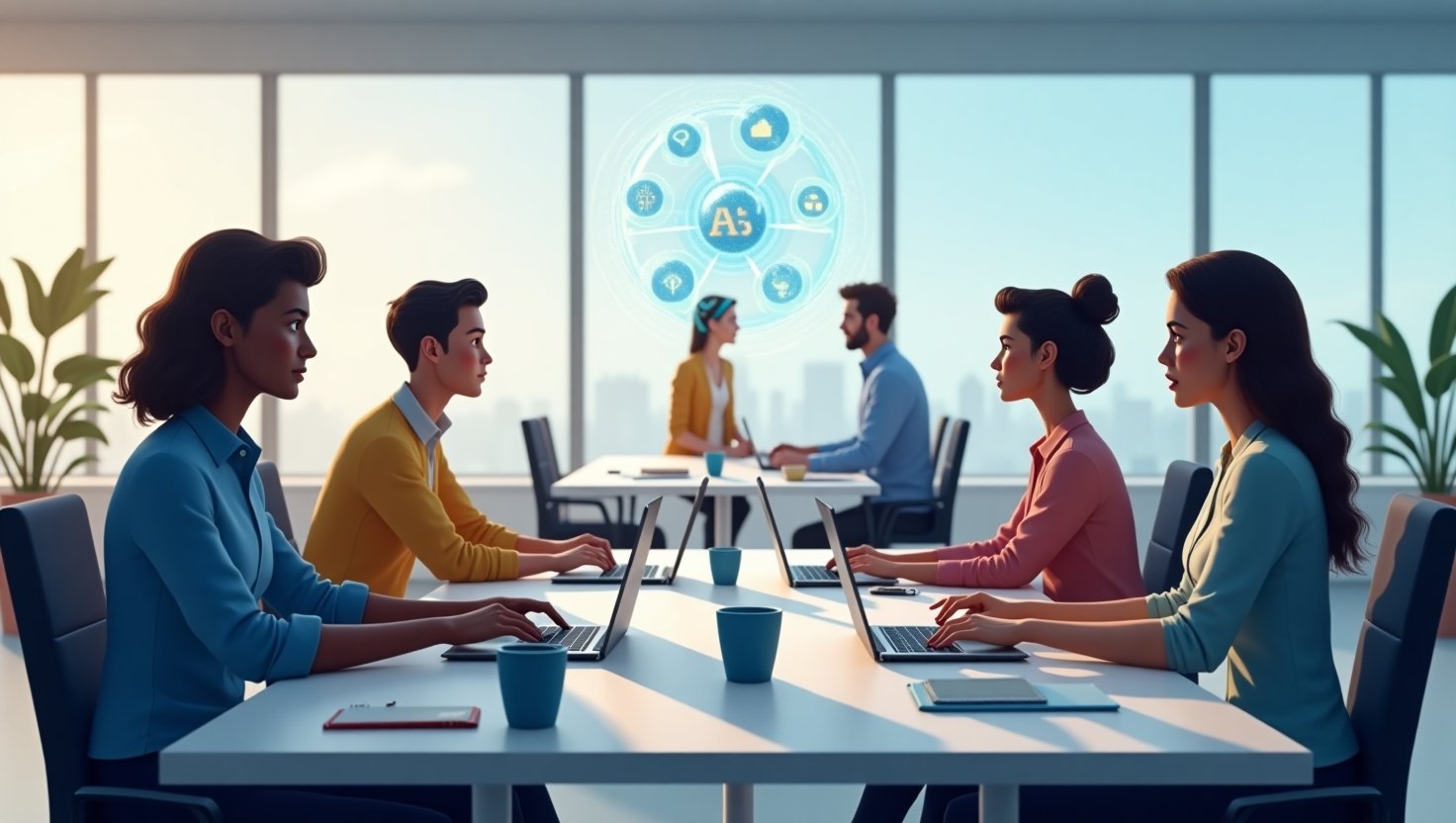Navigating the AI Revolution: Job Displacement or Opportunities Reimagined?
The rise of artificial intelligence (AI) heralds both immense opportunities and profound challenges, a duality most visibly captured in the discourse around AI job displacement. As AI technology continues to leap forward at breakneck speed, so does the anxiety about the potential economic impact on the workforce. Critics argue that AI might indeed be poised to upend various industries, rendering human labor obsolete. However, the reality might be more nuanced as the future of work unfolds under the AI revolution.
The Myth of AI Job Displacement
It’s easy to succumb to the dystopian narrative that AI will lead to mass unemployment. Just as the invention of the printing press triggered fears of job losses among scribes, today’s AI advancements stoke similar fears. Yet, historically, technological innovation often creates more jobs than it destroys. The anticipated economic impact of AI on job markets, predicted by many to be severe, can be seen as a repetition of past technology-induced anxieties characterized by misunderstanding or fear, akin to AI myths that exaggerate machine capabilities source.
Debunking the Myths
The relentless AI hype has seduced many into believing that AI systems are poised to replace all human jobs. Yet, nuanced reports indicate that 95% of AI implementations fail to deliver on their economic promises, questioning the very foundation of these apocalyptic forecasts source. An apt analogy here is the exaggeration of AGI (Artificial General Intelligence) as a savior, drawing stark comparisons to conspiracy theories that distract from tangible issues. The technological landscape is littered with examples of failed AI pilots, underscoring the gap between expectation and reality.
Future of Work: Embracing the AI Evolution
Instead of fearing displacement, we should pivot our mindset to embrace an evolved understanding of labor in an AI-integrated world. AI’s advancement does mean that certain roles, especially routine and repetitive ones, are more susceptible to automation. However, it simultaneously heralds new categories of work that emphasize human creativity and complex problem-solving.
Reimagining Workforce Roles
* AI enables the automation of mundane tasks, allowing humans to focus on work requiring emotional intelligence, creativity, and strategic oversight.
* Jobs in AI ethics and governance, AI-human collaboration, and digital wellness are emerging as new career avenues.
* Rather than redundancy, AI could catalyze a reskilling revolution, driving the development of new skills.
While AI might eliminate certain types of jobs, it also expands potential avenues for employment in technology-heavy sectors. For instance, the development of safer AI platforms like Character.ai demonstrates the need for regulatory roles to oversee ethical AI implementation, reflecting a shift in labor demands source.
Provocation or Prophecy?
The narrative surrounding AI job displacement can provoke anxiety but also inspire proactive adaptation. By fostering a culture of continuous learning and innovation, societies can mitigate the adverse economic impacts while capitalizing on new opportunities. Forecasts suggest that embracing AI could lead to more equitable, efficient, and productive economies.
As the discourse on AI job displacement continues, the call is clear—let us not succumb to unfounded fears or AI myths. Instead, we must strategically navigate the transformational waves of AI, ensuring that the future of work is one of inclusivity and opportunity, not scarcity. This transformation should be perceived not as a zero-sum game but as a collaborative endeavor where humans and machines synergize for greater societal benefit.
The challenge, therefore, lies in how society—governments, businesses, and individuals—acts today to pave the way towards a balanced integration of AI into the workforce, mindful of both its risks and potential to revolutionize the economy.










